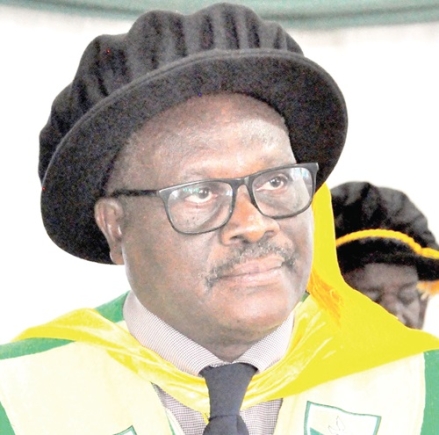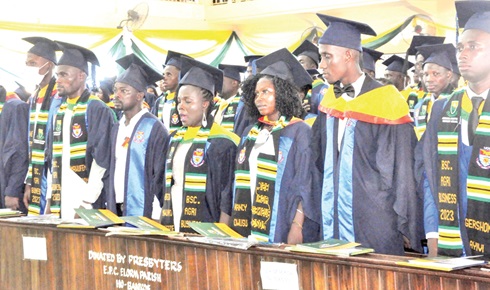
E.P. University College in last stage to attain Presidential Charter
The acting President of the E.P. University College (EPUC), Professor Tsatsu Adogla-Bessa, has said that the institution has completed the mandatory self-evaluation stages with the Ghana Tertiary Education Commission (GTEC).
He said at the moment, they were waiting for the final evaluation stage to attain a Presidential Charter to become an autonomous university. Prof. Adogla-Bessa was speaking at the 15th EPUC graduation ceremony in Ho in the Volta Region last week Friday, where 285 students graduated at the Bachelor’s, Diploma and Certificate levels from the Schools of Business, Arts and Social Sciences, Agriculture and Environmental Sciences, and Human Resource Management.
Support
Prof. Adogla-Bessa said EPUC currently relied on tuition fees alone as revenue which he said was not sufficient to support its operations. “As the university college continues to intensify its admission drive to increase enrolment and raise funds to support its activities, we would like to make a special appeal to philanthropists, funding agencies, estate developers, construction companies, individuals and organisations to partner us raise funds for the Presidential Charter process, and the establishment of an endowment fund,” he added.
Prof. Adogla-Bessa also said that the search for a substantive president for the university college was over and that appointment would be made soon. He said the EPUC had 18 full-time lecturers, supported by 50 part-time lecturers, six administrative senior members, 15 senior and junior staff, and nine casual staff at the Ho campus.
At the Peki Seminary campus, Prof. Adogla-Bessa said there were five faculty members, supported by 22 part-time lecturers.
Appeal
The Chairman of EPUC Governing Council, Dr George Mawusi Afeti, said there was the need for partnership between the state and private education providers to build the needed skilled workforce and requisite human capital that the country needed for sustainable development.

The students
He said private tertiary institutions positively complemented human resource development efforts of public universities. “With the spike in enrolment in senior high schools, thanks to the Free SHS programme, the pressure on public tertiary education system in the country will only increase, not decrease,” Dr Afeti added.
The (NDC) Member of Parliament for Ho West, Emmanuel Kwasi Bedzra, urged management of the university college to convert their challenges into opportunities to transform the university into a world-class institution.
For instance, he said, they could establish academic chairs in the various departments and faculties to raise funds to support their activities.
